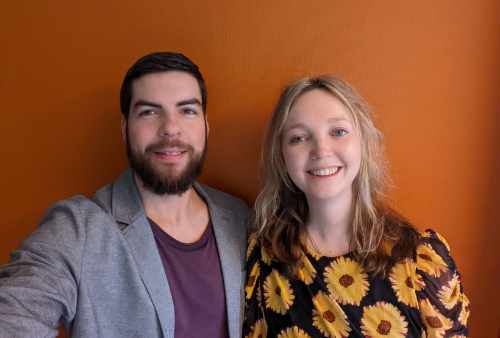Finding the right psychedelic guide or facilitator takes time and diligence. Rather than jumping at the advertised first option, vetting a range of candidates thoroughly ensures you select the ideal match for your needs and personality.
Renee sought psychedelic-assisted therapy to help overcome addictive behaviours she had struggled with for years. While nervous to embark on this unconventional treatment path, she knew having an experienced, trusted guide was essential for safety and insights.
She resolved to be selective and proactive in researching her options. Renee understood choosing the right practitioner would require effort, but could make all the difference in reaching her recovery goals.
1. Finding Coaches, Facilitators, Retreats
While the traditional method of asking friends for referrals was always viable, Renee wanted to ensure she had a comprehensive understanding of all available resources. She began her search by delving into online directories and listings provided by reputable organisations.
These platforms offered a wealth of information, presenting a panoramic view of professionals with specialised expertise in psychedelics. This initial broad search was crucial, as it gave Renee a sense of the vast landscape of providers and their diverse range of services.
Renee filtered for facilitators with specific training in addiction and substance abuse. Their websites detailed various credentials, specialisations and methodologies. After spending a few hours researching, Renee compiled a list of potential matches. But her work was far from over. The vetting process was a crucial next step.
2. Vetting Credentials and Reviews
With her initial list of candidates compiled, Renee began thoroughly vetting their backgrounds and other client reviews.
She researched the educational credentials of each facilitator, looking for licensure in fields like psychology, clinical social work, marriage therapy or psychiatry. Proper healthcare licensing provided a baseline level of confidence.
Renee also looked for additional certificates and psychedelic-specific training programs completed. She felt most comfortable with guides holding credentials both in traditional psychotherapy and emerging psychedelic therapies.
Beyond degrees, Renee looked closely at how many years each provider had practised psychedelic-assisted techniques. Those newer to the field gave her pause. Experience mattered.
Client testimonials and reviews offered qualitative insights into people’s experiences. Renee appreciated reading about transformation milestones reached under different practitioners. This provided a holistic sense of their styles.
Through careful credential and review cross-checking, Renee narrowed her list to three highly qualified candidates to interview further. Her due diligence would pay off in finding the ideal match.
3. Having Exploratory Calls
With three top contenders identified, Renee scheduled introductory consultation calls with each to determine the optimal fit.
She came prepared with questions spanning their specific modalities, psychedelic experience, personal approach, areas of specialisation, and more. Renee asked for case examples of treating addictions similar to hers.
The calls aimed to get a visceral sense of each practitioner’s energy, listening skills and compassion. Did they seem genuinely invested in understanding Renee’s story versus giving rote sales pitches? Could she envision entrusting this person to guide her through psychedelic vulnerability?
Renee felt most comfortable with two practitioners based on their warmth, responsiveness to her concerns, and embodiment of the work. She scheduled second, more extended discussions with both.
By the end of her calls, Renee felt convinced of their capabilities. However, her personality clicked slightly more with Lotte’s nurturing presence. After so much research, going with her intuition about fit felt right.
4. Evaluating Rates and Services
Simultaneously with vetting the coaches, Renee also evaluated what the three facilitators provided regarding rates, packages and offerings to ensure they aligned with her goals and budget.
She found Lotte offered personalised psychedelic-assisted coaching programs spanning 3-12 sessions over several months. Her rates per session were also quite reasonable.
The programs included preparatory counselling, guided psilocybin sessions, integration work, and ACT-based coaching and mindfulness modalities.
Lotte was also willing to break programs into phases so Renee could try initial online coaching sessions before committing to the entire program. This flexibility and transparency put Renee at ease.
The service structure and fees felt affordable and suited for Renee’s desired timeline of incremental progress in tackling her addiction. She felt ready to move forward with Lotte.
5. Signing a Coaching Agreement
Before officially enrolling in Lotte’s psychedelic-assisted program, Renee thoroughly reviewed and signed a coaching agreement clearly outlining the scope of services.
This agreement provided transparency around program structure, modalities, number of sessions, Lotte’s specific qualifications, fees, and cancellation policies.
It also detailed ethical commitments around client privacy, safe session space, and adherence to industry guidelines. Renee appreciated the clarity.
Most importantly, the document explicitly stated addiction treatment outcomes could not be guaranteed. It also outlined some specific mental health conditions Lotte was not specialised in treating.
While initially daunting, signing an agreement gave Renee confidence in knowing exactly what to expect. It formalised the partnership.
Conclusion and Checklist for Choosing a Psychedelic Facilitator
Finding the ideal psychedelic guide takes time, but following key steps leads to the right fit:
- Research providers online and through referrals
- Vet credentials, training credentials and reviews
- Have exploratory calls to determine personality fit
- Evaluate rates/services vis-a-vis your goals/budget
- Sign an agreement outlining the scope of work and ethics
- Trust your intuition during the vetting process
While selecting a practitioner for psychedelic-assisted coaching warrants diligence, the personalised nature of this work means taking your time pays off. Doing thorough research and listening to your heart when meeting potential guides will lead you to a resonant match.
The right facilitator enables safe, meaningful journeys that unlock breakthrough healing and growth. When dropping into uncharted waters inward, having an experienced, caring navigator makes all the difference.
[this story represents the steps you can take before choosing a psychedelic facilitator, told through the eyes of Renee, one of our three characters that help explain psychedelics through stories]


